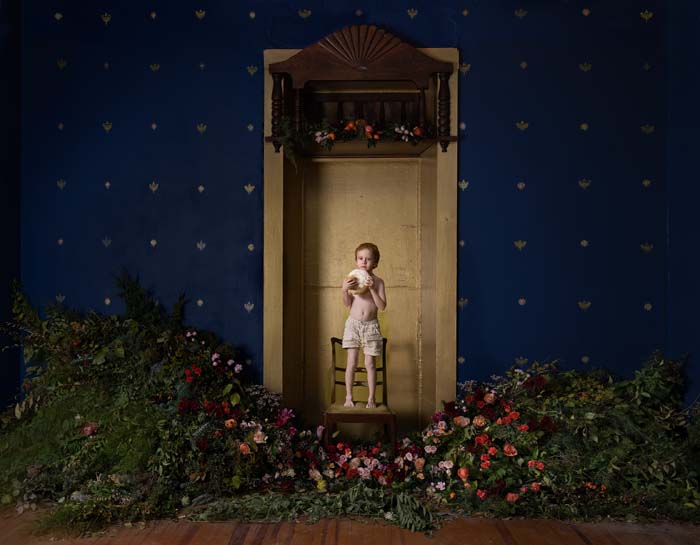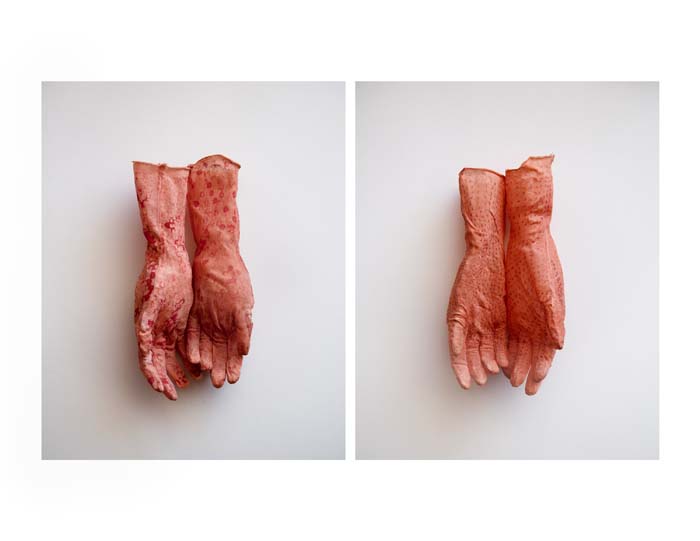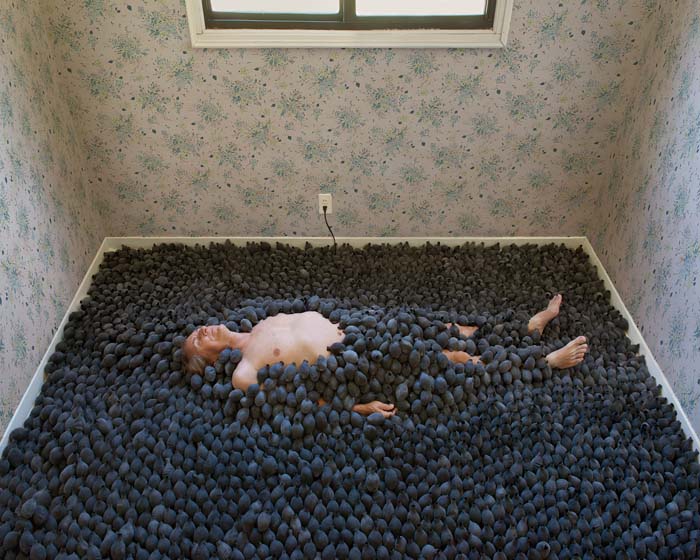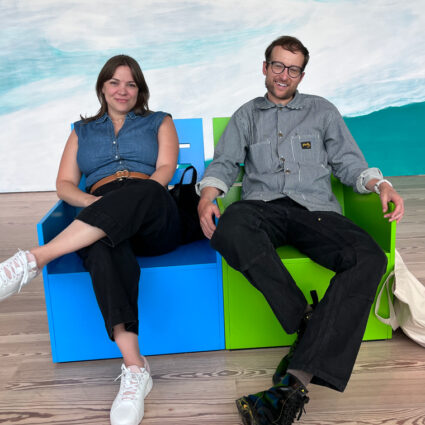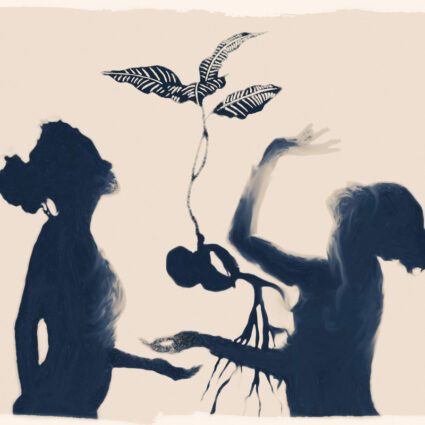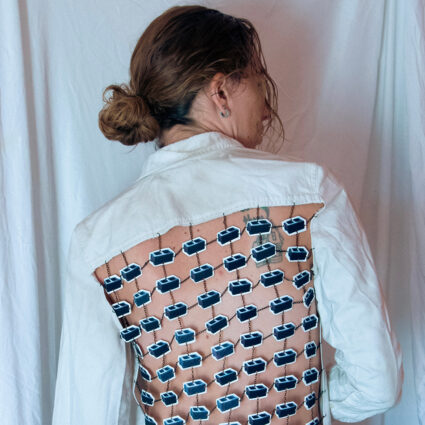New Mexico artist Jennifer Thoreson calls on her own religious experiences as she examines the complex relationships between belief systems and human behavior.
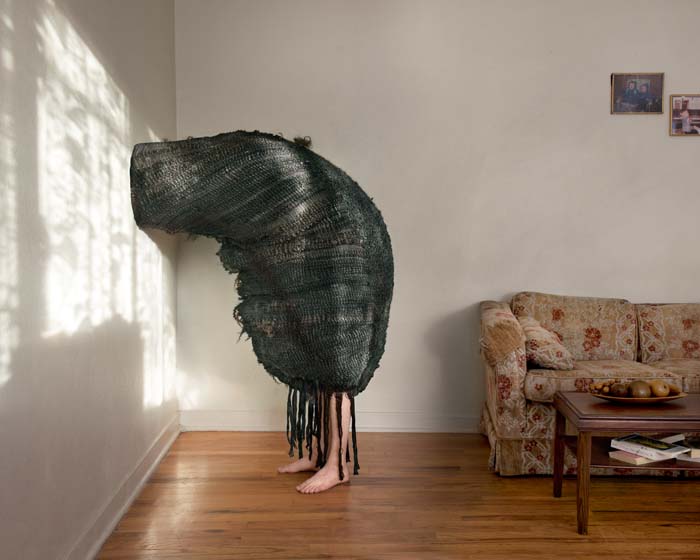
Albuquerque | jenniferthoreson.com | @jenniferthoresonart
Growing up in a devout Southern Baptist household in rural Texas, Jennifer Thoreson witnessed the ways religious beliefs impacted human behavior. “I was always the kid who wanted to ask questions,” she recalls.
But Thoreson was also the child who lived with anxiety, a condition she dealt with in part by using self-devised rituals, like telling family members good night three times before she’d go to bed at night, fearing everyone would die before she woke in the morning.
Eventually she’d leave home, stumble on other faiths that expanded her mental and emotional canvas, and discover that creative practices involving repetition of movement or pattern could replace those old rituals. She was particularly drawn to textile arts, with its weaving, felting, and spinning yarn, as well as making pottery and sculptures—and taking photographs.
Today, she’s a multidisciplinary artist working in Albuquerque who says she’s developed her own belief system without identifying with a specific church, and still has a keen interest in the ways spiritual beliefs impact everyday ethics.
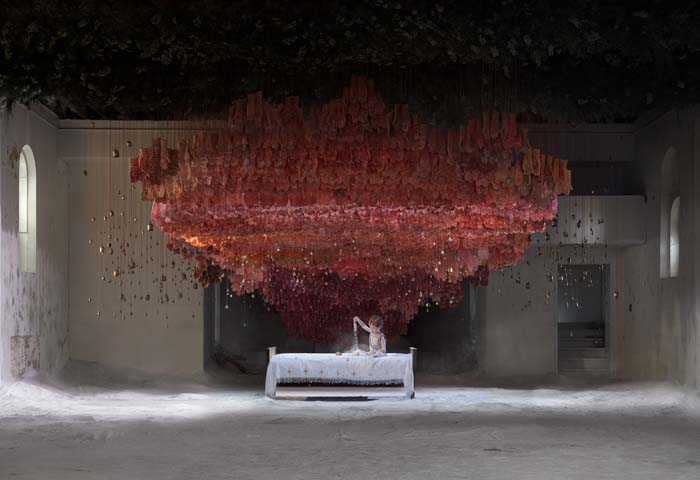
For her Testament series (2015), Thoreson spent a year taking photographs inside a small house referencing her childhood home. For each of twelve photographs, she created a site-specific scene using materials referenced in the Bible to create sculptural pieces and installations that appear with human forms.
More recently, Thoreson gathered nearly 2,000 gloves from people around the globe for a work-in-progress that contemplates the act of prayer. She’ll dye and shape each glove before creating a monumental installation in which the hand coverings are suspended from a ceiling, where those who walk among them will hear the sounds of handmade tin bells and recorded voices of community members.
“I hope my work helps people explore the impact of their beliefs on the way they view and treat both themselves and other people,” she says.
